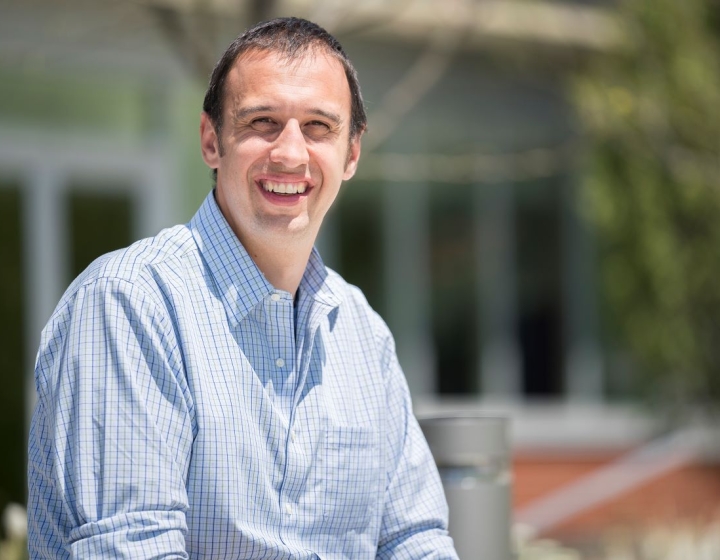Microbe pros tackle health risks in developing nations
When tackling some of the biggest problems facing our world’s future, uniting minds across disciplines can make for amazing solutions. Toward that end, two professors at Cornell’s College of Veterinary Medicine have teamed up with experts from across Cornell University, receiving venture funding for innovative projects to develop applied technologies aimed at actively bettering the world.

 Each professor’s project is among nine receiving 2013 Academic Venture Fund awards from Cornell’s Atkinson Center for a Sustainable Future (ACSF). Designed to stimulate original interdisciplinary research in sustainability, the annual awards seed projects that have potential to grow by engaging external partners – including industry, government, foundations, and NGOs – to create viable solutions to our world’s most pressing problems.
Each professor’s project is among nine receiving 2013 Academic Venture Fund awards from Cornell’s Atkinson Center for a Sustainable Future (ACSF). Designed to stimulate original interdisciplinary research in sustainability, the annual awards seed projects that have potential to grow by engaging external partners – including industry, government, foundations, and NGOs – to create viable solutions to our world’s most pressing problems.
Professor of Parasitology Dr. Dwight Bowman’s team won a $100,000 grant to develop a toilet with biological pathogen control over the next year. The project draws from Bowman’s expertise in microbiology and immunology and his teammates’ knowledge in developmental sociology, applied economics and management, and biological and environmental engineering.
They are developing a simple toilet that uses a solar-heated fermentation bag to produce butyric acid—an integrated bioreactor that kills E. coli, parasitic worm eggs, and other pathogens. Treated toilet contents are expected to be safe to apply as fertilizer. While continuing to test the technology, the team will survey three Ethiopian communities to establish that the design is culturally acceptable and ensure practical construction and operating costs—next steps toward widespread adoption of this innovative toilet.
“The developing world urgently needs proper sanitation to suppress diseases spread by human waste,” said Bowman. “We now have funding and an excellent team to develop something that could make a big difference in many people’s health and lives. By teaming up two scientists with a sociologist and an economist, we plan to develop a superior toilet that is appropriate for the area and will actually be used by its people.”

 Dr. Judith Appleton, the Alfred H. Caspary Professor of Immunology at the College’s Baker Institute for Animal Health, is joining chemistry professor Dr. Frank Schroeder to develop small molecules that can vanquish parasitic worms. Their award of $67,212 funds the project for a year.
Dr. Judith Appleton, the Alfred H. Caspary Professor of Immunology at the College’s Baker Institute for Animal Health, is joining chemistry professor Dr. Frank Schroeder to develop small molecules that can vanquish parasitic worms. Their award of $67,212 funds the project for a year.
Soil-transmitted worms—including Ascaris, Trichuris, and hookworm—threaten 4.5 billion people worldwide, compromising human health and productivity in the world’s poorest regions. Children are at the greatest risk. Parasitic worms also attack young pigs, raising the cost of this popular protein source. The duo will apply cutting-edge chemical technology to discover novel small molecules, called ascarosides, in Trichuris worms.
“Our ultimate goal is to develop an ascaroside-based vaccine to protect children and livestock from worm infections,” said Appleton. “This could improve the lives of billions by slashing human and animal health care costs, reducing soil drug contamination, and boosting economic development.”





